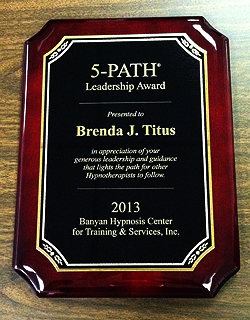By Brenda Titus
**Part 1 of a 4 Part Series
The teenage years can be challenging. No longer children, not quite adults, this is the time for many to begin truly exploring what they want to do with their lives, what is important to them, and what their values are. This can be an exciting time of life, and it can be extremely stressful, especially since teens do not have the experience, skills, or maturity to handle the adult decisions that they are beginning to make for themselves. They continuously straddle the desire for independence with the need to follow the expectations of authority figures, such as their parents and teachers.
Throughout the year, I will explore how hypnotists can help adolescents and their families. In this edition, I will discuss challenges that teens as a whole experience, along with special considerations for Hypnotists to address when working with teens. As the year progresses, I will explore issues that vary according to age and grade in school, focusing on middle school, the early high school years, and concluding with the late high school years.
Presenting Issues
Teens will come to see a hypnotist for many of the same reasons that adults would. Some of the more common ones that I have worked with include confidence, performance (academic and extracurricular), weight loss, stress/anxiety, fears, and bullying. Hypnosis is a great tool to aid teens and their families with their communication skills, cope with stress, begin to envision the future, and set attainable goals. It can also help young people develop a sense of confidence and self-esteem to help them get through the difficult teen years.
Challenges and Rewards
During the teen years, young people experience an opportunity to begin thinking for themselves as they develop their own sense of self and identity. They begin developing their own belief systems, their own values, sometimes even their own religious or spiritual philosophies. These are often informed by their upbringing, and may often align with parental beliefs, values, and philosophies, but not always. This can lead to inner conflict within the teen, including anger toward the parents along with guilt due to questioning their own upbringing. It can also lead to outer conflict for teens who push past acceptable boundaries within the home or social structure. They may face consequences such as grounding/punishment at home or suspension/expulsion from school.
For some teens, this phase in life is the first time that they’ve ever truly stopped and thought about what they want to do with their lives, which sometimes coincides with the realization that what they want is different from what their parents want for them or expect from them. From educational expectations, extracurricular activities, future career selection, sexual orientation, and gender identity, teens have many things to figure out for themselves, which can be stressful and overwhelming.
At this time in their lives, teens gradually become aware of the fact that their actions have consequences beyond the here and now. In school, their grades become cumulative and will count toward their ability to get into the college of their choice. The classes and extracurricular activities that they choose also impact them long term, as they often develop their social status based on these activities and classes. Because this is the first time in their young lives that their actions impact their lives in the long term, they are not yet future-oriented. For some, the future seems vast and incomprehensible, impossible to attain, and therefore scary, something to be ignored or denied.
In the midst of all of these challenges and pressures, it is vitally important within the teen social structure to stay cool, to look like they’ve got everything under control, when under the surface, they are under a lot of stress that they do not understand.
While there are many challenges to working with this clientele, there is one very large reward- working with teens is extremely fulfilling and gratifying! They have so much of their lives left, and the truth is that when you make a difference in the life of a teen, you can really make an impact on their future relationships, education, and career. By helping them get on the “Road to Success” early in their lives, you can help them make good, healthy choices before they ever start making truly detrimental choices. Successful work with this age group could help them develop healthy relationships, aid them in managing stress so that they can succeed in high school and college, prevent drug and alcohol abuse, and ultimately help them to be healthy, well-rounded adults.
Special Considerations when working with teens
Managing expectations of the client and the parents: It is important to maintain a balance of expectations between the parents’ goals and the client’s goals for their sessions. The parents may send the teen to hypnosis to manage a behavior that the teen doesn’t have the desire to change. In situations like this, work with the teen on having some goals for themselves, which will often intersect with the goals of the parents. An example is to help them improve in one of their hobbies or extracurricular activities (their goal) along with their school work (the parents’ goal). You may also begin your work together on broader goals, such as self-esteem and confidence, and then show them how their school work or behavior will improve due to having better self-esteem.
Investment in sessions: In addition to working with the teen to develop emotional investment in the outcome of their sessions by working on goals that are important to them, it is valuable to make sure that they are in some way financially invested in the session. Encourage the parents to have the teen do extra chores for their sessions or invest in some way so that they take an active interest in their own success.
Developing trust: It is vital to develop a relationship of trust with both the teen client and the parents. This will usually involve interacting with each separately and with them together. In my practice, I usually begin this process with the parents on the phone. I take a history of the problem and arrange to meet with them. I let them know in advance that when they come to the office that I will meet with both the teen and the parent at the beginning of each session, and then I will have the parent leave the room and I will complete the session with the teen. When they come to the office, I look the teen in the eye, and I tell them the same thing. Once the teen and I are on our own, I will double check intake information provided by the parent for accuracy, ask if there is additional information that they would like to share, and develop a relationship with the client that is separate from the parents’ involvement. Teens are not used to having intense, intimate relationships with adults. Once they realize that the hypnotist is prepared to meet them on their level and wants to hear their side of the story, this trust begins to develop.
Client confidentiality and informed consent: I always explain to teens that our sessions are confidential, but that I will need to report progress back to their parents. I let them know that we will decide together what I will share with the parents, and I do my best to only speak to the parents about the session in the teen’s presence. After each session, I ask the teen what elements of the session are ok to discuss with the parents (and what parts are not). Usually, they are fine discussing the overall themes of the session without getting into detail. Some teens do well reporting the session outcome back to their parents, which is very beneficial to the client retaining the work that they did in session so that they can carry through on the improvements that they are making. While sessions are confidential, teens may not realize that potential danger to self or others does not fall under their rights to confidentiality. It is important to discuss this with them in the event that something comes up in session that must be reported to law enforcement or child abuse authorities.
Worries and fears: Fear is a common obstacle to a successful hypnosis session. When working with adolescents, the fears of the parents may play into the success of the sessions. There is the potential of fear of what will come up during the session or the possibility that the client will fabricate during the session. It is important that the parents participate in your pre-talk and pre-hypnosis interview so that they are fully educated on the process and that any misperceptions or fears are resolved before you begin your work with the client.
Follow-through: When working with teens, it is important that the parents support and reinforce the positive changes that the client makes in between sessions. It is also helpful for the parents to partner with other supportive adults, such as teachers, coaches, or club advisors for this support and reinforcement. Make it clear to the parents that your work is a process, and that the client is making steps each session toward the goals that you are working on together. I highly recommend seeing the parents for sessions as well, so that they understand the process and the impact that these sessions can make. This will make a large impact on their ability to support the teen through the process so that they can truly make the positive changes that they want to make, which will continue to benefit the family as a whole for years to come.
I will continue to explore this topic over the coming year, focusing more specifically on challenges and special considerations as they impact varying stages of teen development. This short stage of life is filled with growth and learning that will lay the foundation for the client and their family for years to come. Working with this clientele is extremely rewarding, and with this information, a hypnotist can feel very confident in their capacity to help these clients.










